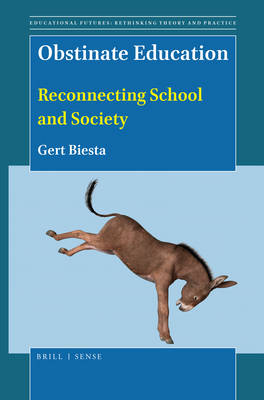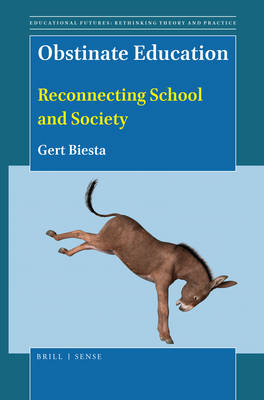
- Afhalen na 1 uur in een winkel met voorraad
- Gratis thuislevering in België vanaf € 30
- Ruim aanbod met 7 miljoen producten
- Afhalen na 1 uur in een winkel met voorraad
- Gratis thuislevering in België vanaf € 30
- Ruim aanbod met 7 miljoen producten
Zoeken
Omschrijving
What should the relationship between school and society be? Obstinate Education: Reconnecting School and Society argues that education is not just there to give individuals, groups and societies what they want from it, but that education has a duty to resist. Education needs to be obstinate, not for the sake of being difficult, but in order to make sure that it can contribute to emancipation and democratisation. This requires that education always brings in the question whether what is desired from it is going to help with living life well, individually and collectively, on a planet that has a limited capacity for giving everything that is desired from it.
This book argues that education should not just be responsive but should keep its own responsibility; should not just focus on empowerment but also on emancipation; and, through this, should help students to become 'world-wise.' It argues that critical thinking and classroom philosophy should retain a political orientation and not be reduced to useful thinking skills, and shows the importance of hesitation in educational relationships. This text makes a strong case for the connection between education and democracy, both in the context of schools, colleges and universities and in the work of public pedagogy.
This book argues that education should not just be responsive but should keep its own responsibility; should not just focus on empowerment but also on emancipation; and, through this, should help students to become 'world-wise.' It argues that critical thinking and classroom philosophy should retain a political orientation and not be reduced to useful thinking skills, and shows the importance of hesitation in educational relationships. This text makes a strong case for the connection between education and democracy, both in the context of schools, colleges and universities and in the work of public pedagogy.
Specificaties
Betrokkenen
- Auteur(s):
- Uitgeverij:
Inhoud
- Aantal bladzijden:
- 196
- Taal:
- Engels
- Reeks:
- Reeksnummer:
- nr. 72
Eigenschappen
- Productcode (EAN):
- 9789004401099
- Verschijningsdatum:
- 20/06/2019
- Uitvoering:
- Hardcover
- Formaat:
- Genaaid
- Afmetingen:
- 163 mm x 236 mm
- Gewicht:
- 476 g

Alleen bij Standaard Boekhandel
+ 460 punten op je klantenkaart van Standaard Boekhandel
Beoordelingen
We publiceren alleen reviews die voldoen aan de voorwaarden voor reviews. Bekijk onze voorwaarden voor reviews.








